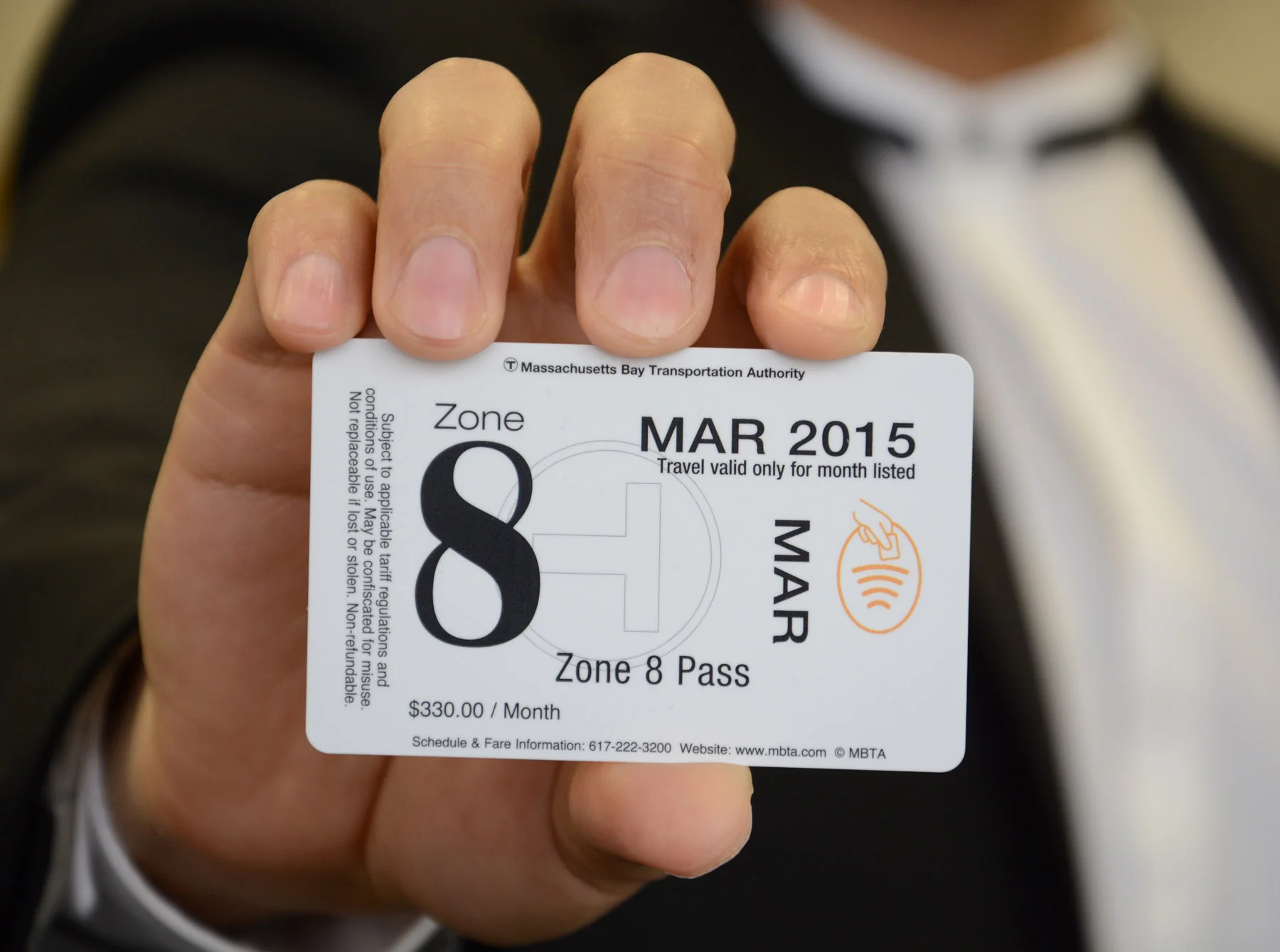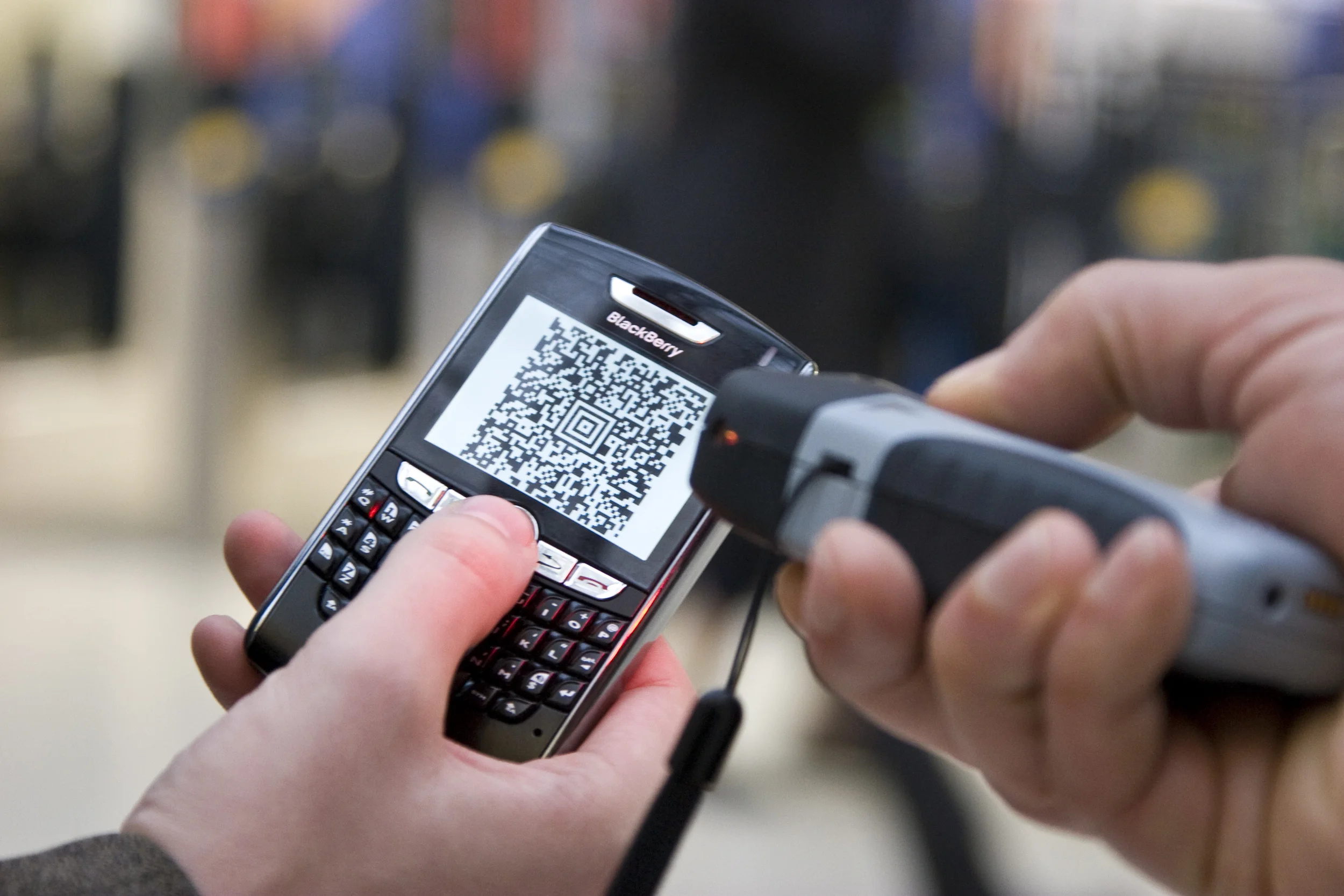If you have a corporate monthly pass...
Commuter rail passengers rejoice! In addition to having restored 42 more scheduled trains to service, bringing them up to 82% of normally scheduled service, it looks like Keolis and the MBTA will soon be issuing CharlieCards to all customers who receive their monthly passes through the corporate program.
According to an advisory issued to corporate subscribers, customers will be given CharlieCards on a monthly basis, replacing paper CharlieTickets. These will be loaded with a LinkPass that can be used on buses and trains (presumably for all non-Interzone passes). By the sound of it, there will be an indicator of the card's validity and cards will only be visually examined by commuter rail conductors.
Update: MBTA Director of Communications Joe Pesaturo filled us in with some background on the program:
In January, the MBTA began a pilot program involving CharlieCards with a monthly pass printed on them. These cards have been used as ‘flash passes’ on board commuter rail trains, then they are used like any other CharlieCard (tapped for entry at fare boxes and fare gates).
With the March CharlieCards/Monthly passes, the end of the 3-month trial program is approaching. Because feedback from customers in the pilot program has been very positive, interim MBTA General Manager Frank DePaola is extending the program. GM DePaola says the CharlieCard/monthly passes are available to all participants in the Corporate Pass Program and customers who purchase monthly passes through the MBTA website.
Photo Credit: Masabi (Flickr)
One and a half steps forward
This isn't quite the full implementation of the CharlieCard system that was originally planned with the rollout of CharlieCard. Only 3 years ago, the MBTA unveiled plans to implement Masabi's smartphone ticketing platform; New York's MTA commuter railroads followed suit months later.
Apparently implementing mobile ticketing isn't a problem unique to Boston. Other agencies, including Chicago's Metra and CTA have struggled to harmonise fare payment systems, even after the recent introduction of the relatively forward-thinking Ventra payment system. Even New York City's deployment of an RFID smartcard system has taken decades.
Cubic, the company who now owns NextBus, the information broker for our bus tracking and prediction system, also happens to make the smartcard systems for the Bay Area, Minneapolis, and Seattle, all of whose commuter rail networks accept payment via smartcard.
Light at the end of the tunnel
Many of these investments have been hampered by the more threatening spectre of deepening backlogs of safety-critical repair projects, many of which continue to go un-addressed by the state leadership who hold the purse strings of regional transit agencies.
Biding our time may end up paying off in the end. As contactless payment systems have emerged, there's been concern about different technologies security vulnerabilities, universal compatibility, and overall cost of implementation. At this month's Mobile World Conference, Cubic and MasterCard announced a partnership. We're likely to see further partnerships as these technologies mature and standards emerge.
Plentiful, standardised technologies will make it cheaper to implement a new fare payment system (but will still cost millions to implement). This is the type of organisational and electronic change we should be expecting of the T as ask them to improve operational efficiency. To that end, we can't pursue this efficiency without investment—a very significant point we hope this winter has proven.
For now, we'll settle for a little extra convenience, even if it's really only a half-step in the right direction.
Lede photo: MBTA Press


